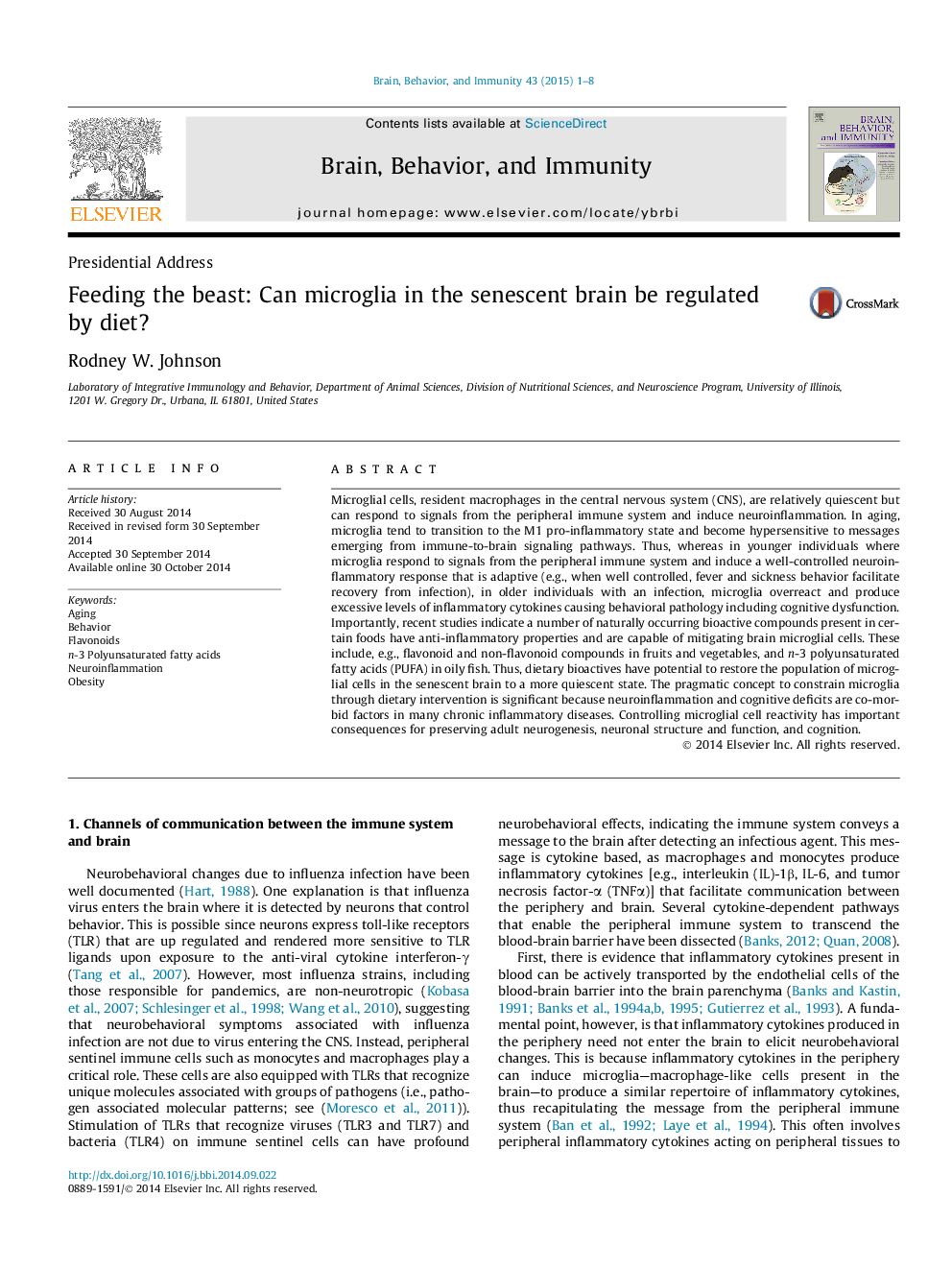| Article ID | Journal | Published Year | Pages | File Type |
|---|---|---|---|---|
| 7281271 | Brain, Behavior, and Immunity | 2015 | 8 Pages |
Abstract
Microglial cells, resident macrophages in the central nervous system (CNS), are relatively quiescent but can respond to signals from the peripheral immune system and induce neuroinflammation. In aging, microglia tend to transition to the M1 pro-inflammatory state and become hypersensitive to messages emerging from immune-to-brain signaling pathways. Thus, whereas in younger individuals where microglia respond to signals from the peripheral immune system and induce a well-controlled neuroinflammatory response that is adaptive (e.g., when well controlled, fever and sickness behavior facilitate recovery from infection), in older individuals with an infection, microglia overreact and produce excessive levels of inflammatory cytokines causing behavioral pathology including cognitive dysfunction. Importantly, recent studies indicate a number of naturally occurring bioactive compounds present in certain foods have anti-inflammatory properties and are capable of mitigating brain microglial cells. These include, e.g., flavonoid and non-flavonoid compounds in fruits and vegetables, and n-3 polyunsaturated fatty acids (PUFA) in oily fish. Thus, dietary bioactives have potential to restore the population of microglial cells in the senescent brain to a more quiescent state. The pragmatic concept to constrain microglia through dietary intervention is significant because neuroinflammation and cognitive deficits are co-morbid factors in many chronic inflammatory diseases. Controlling microglial cell reactivity has important consequences for preserving adult neurogenesis, neuronal structure and function, and cognition.
Related Topics
Life Sciences
Immunology and Microbiology
Immunology
Authors
Rodney W. Johnson,
